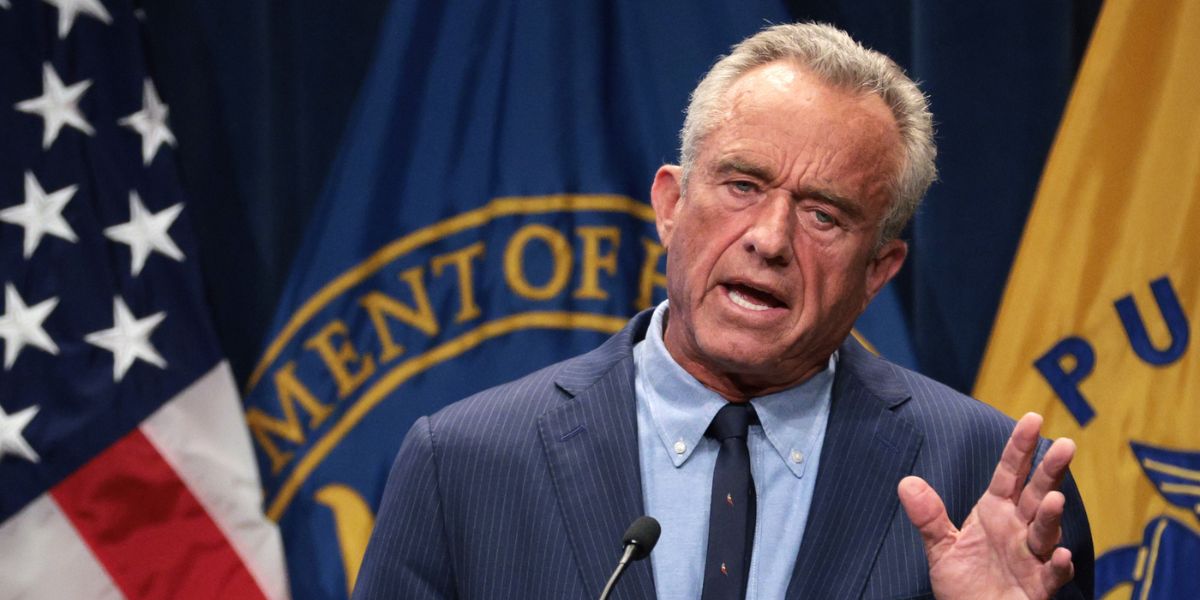Many vaccine scientists protested when Health Secretary Robert F. Kennedy Jr. announced on Monday that he had dismissed all 17 members of a panel of vaccine experts from the U.S. Centres for Disease Control and Prevention and was in the process of replacing them.
Kennedy, a longtime vaccine sceptic, has taken a number of steps to change how the United States regulates food, medicine, and vaccines, and this is the most significant of them.
According to experts and scientists, the modifications to the vaccine panel, which makes recommendations about who should use vaccines and how, would erode public trust in health organisations.
Kennedy said the action would boost public trust.
Kennedy stated, “Today we are prioritising the restoration of public trust above any specific pro- or anti-vaccine agenda,” according to a DoH and Human Services statement.
Kennedy has long expressed scepticism regarding the effectiveness and safety of vaccines, but in order to be appointed to President Donald Trump’s administration, he promised to uphold the nation’s current vaccination standards.
Despite reservations about his views, Kennedy’s department oversees the Food and Drug Administration, which has approved several vaccines during his tenure.
Nevertheless, at least one prominent Republican congressman voiced scepticism regarding the panel’s modifications.
Although the U.S. Food and Drug Administration has the final say over whether to approve vaccines, Kennedy said the Advisory Committee on Immunisation Practices is riddled with conflicts and has never rejected a vaccine.
The CDC panel advises the CDC on which populations would benefit most from a vaccine that has already received approval.
“That’s a tragedy,” former FDA Chief Scientist Jesse Goodman stated. “This is a highly professional group of scientists and physicians and others… It’s the kind of political meddling that will reduce confidence rather than increase confidence.”
Kennedy’s actions were deemed concerning for public health by the Pharmaceutical Research and Manufacturers of America.
While Pfizer saw a slight decline in extended trading on Monday, shares of vaccine manufacturers Moderna and BioNTech, which is listed in the United States, fell more than 1%.
Although members are expected to disclose any perceived or actual conflicts of interest that may arise during their term, as well as any pertinent business interests, positions of authority, or other relationships with organizations related to the committee’s work, Kennedy stated that the majority of panel members receive funding from pharmaceutical companies.
Read Also: Minnesota Lawmakers Approve Removal of Undocumented Adults from Health Coverage
There was no concrete proof of industry conflicts of interest among departing ACIP members from Kennedy or HHS. One current member had withdrawn from votes on a few vaccines due to her involvement in clinical trials for their manufacturers, according to the CDC’s conflicts of interest webpage, which was last updated in March.
According to HHS, all 17 members of ACIP, including 13 in 2024, were appointed during the administration of former President Joe Biden. Trump’s administration would not have been able to select a majority of the committee until 2028 if they hadn’t been removed.
One influential Republican voiced concern, and Democrats in Congress criticised the decision.
According to the department, the CDC panel will meet again from June 25–27 at CDC headquarters in Atlanta.
Health officials have criticised Kennedy for his vaccination policies, citing his alleged lack of support for the measles vaccine during an outbreak that has killed three people and infected over 1,000, primarily unvaccinated individuals.



